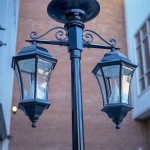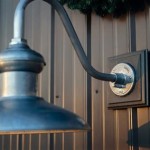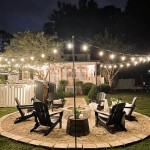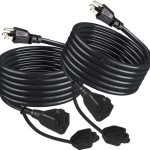Essential Aspects of Best Outdoor Lighting for Photos
Capturing stunning outdoor photographs requires meticulous attention to lighting, as it sets the mood and atmosphere of the scene. Here are essential considerations for maximizing outdoor lighting for exceptional images:
1. Understanding Natural Light
The most crucial factor in outdoor photography is comprehending natural light, which changes throughout the day. Golden hour, around sunrise and sunset, provides soft, warm light ideal for flattering portraits and landscapes. Overhead light during midday can be harsh, requiring diffusers or shade to prevent overexposure. Observing the direction and quality of natural light is essential for optimal results.
2. Balancing Light Sources
Combining natural and artificial light can enhance outdoor scenes, balancing light intensity and adding depth. Artificial light sources, such as flash or strobes, can fill in shadows or create specific lighting effects. However, it's crucial to blend these light sources seamlessly to avoid unnatural or uneven illumination.
3. Effective Use of Reflectors
Reflectors are indispensable tools for redirecting natural light, bouncing it onto a subject to illuminate shadows and create a more balanced exposure. Gold or silver reflectors provide warm or cool light tones, respectively. Positioning reflectors strategically allows photographers to control the direction and intensity of light, optimizing the illumination in any scene.
4. Diffusers and Flags
Diffusers soften harsh sunlight, creating flattering and even illumination. They can be translucent umbrellas, scrims, or frosted glass panels. Flags, on the other hand, block excess light, preventing overexposure or reflections. Combining diffusers and flags provides photographers with precise control over light quality and direction, allowing for refined adjustments.
5. Understanding Color Temperature
Color temperature refers to the warmth or coolness of light, measured in Kelvins (K). Natural light varies in color temperature throughout the day, while artificial light sources have specific color temperatures. Matching the color temperature of light sources is essential for cohesive and visually appealing images.
6. Experimenting with Lighting Techniques
Outdoor lighting is not merely about setting up equipment; it involves experimenting with various techniques to achieve unique and captivating results. Backlighting creates stunning silhouettes, while side lighting emphasizes texture and depth. Experimenting with different lighting angles, intensities, and modifiers enables photographers to explore various creative possibilities.
7. Preparing for Variable Conditions
Outdoor photography is subject to unpredictable weather conditions. Anticipating and preparing for these variations is crucial. Portable diffusers, reflectors, or rain covers can mitigate the impact of harsh sunlight or rain. Planning shoots during periods of optimal lighting conditions and monitoring weather forecasts can increase the likelihood of successful outcomes.
By considering these essential aspects of outdoor lighting, photographers can elevate their images to professional heights. Understanding natural light, balancing light sources, and utilizing reflectors, diffusers, and flags enables photographers to control and manipulate light, creating visually impactful and captivating photographs that capture the essence of the outdoor world.
10 Best Outdoor Lighting Ideas Landscape Design Secrets A Piece Of Rainbow

Best 7 Areas To Boost Curb Appeal With Outdoor Lighting

21 Best Outdoor Lighting Ideas Easy Patio

Best Outdoor Lighting For Your Patio Id Lights

5 Best Outdoor Solar Lights Of 2024 Reviewed

28 Backyard Lighting Ideas How To Hang Outdoor String Lights

Best Outdoor Lighting Bulbs Of 2024

The Best Outdoor Lighting Ideas In 2024

The Best Outdoor Lighting For Your Home

Best Color Temperature For Outdoor Lighting Enhanced
Related Posts







